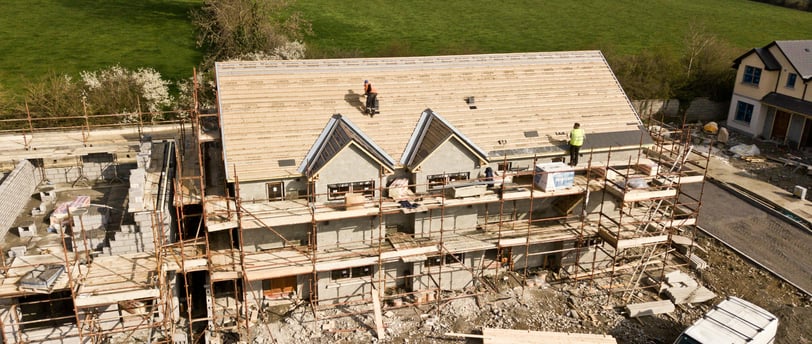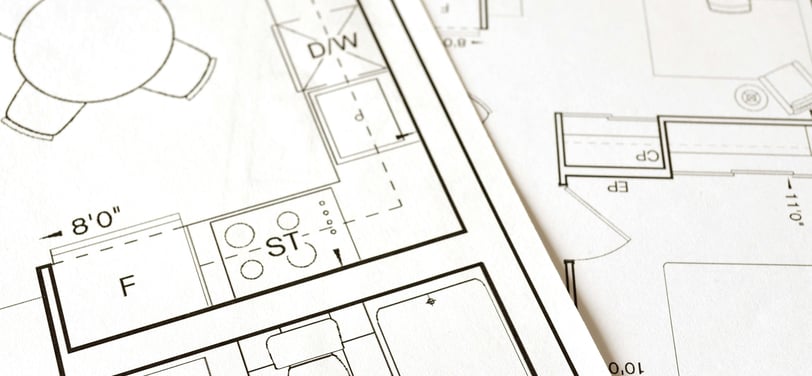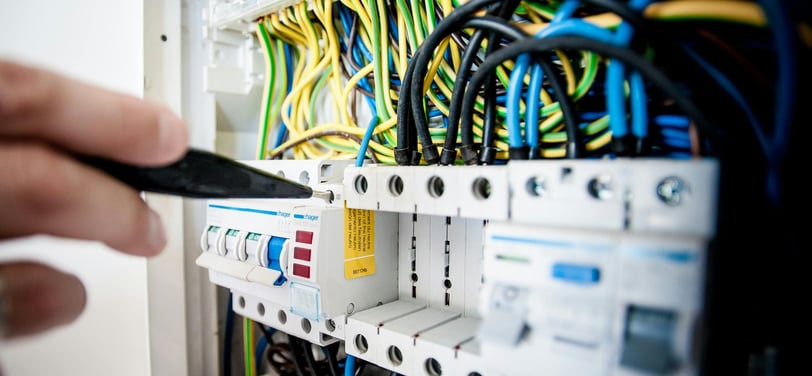Unlocking Home Value: How a Garden Room Can Transform Your Property
Discover how a garden room can enhance your property's value, provide extra living space, and create a stylish, functional retreat.
2/22/20258 min read


Introduction to Garden Rooms: The Growing Trend
Garden rooms have emerged as a popular solution for homeowners seeking to expand their living spaces without the complexities of traditional extensions. These versatile structures, typically located within a garden or outdoor space, provide an innovative answer to the demand for additional functional space amidst evolving lifestyle needs. As modern homeowners increasingly prioritize multifunctional environments that enhance both work and leisure, garden rooms have captured substantial interest. Veiw our services
The growing trend of garden rooms can be attributed to several factors, most notably the surge in remote work. As more individuals shift towards working from home, the need for dedicated office space has become paramount. Garden rooms fulfill this requirement effectively, offering a peaceful sanctuary that separates work from home life, thereby fostering productivity while minimizing distractions. Moreover, garden rooms can be tailored to various functions, from home offices to art studios or recreational spaces. This flexibility has made them an attractive option for homeowners looking to adapt their properties for contemporary living.
As the demand for adaptable spaces grows, garden rooms stand out as a feasible option for homeowners looking to unlock their property's potential. Their ability to fulfill various roles in a stylish and sustainable manner highlights a shift in how we perceive utility in our living environments.
The Financial Benefits of Adding a Garden Room
Investing in a garden room presents various financial advantages that can significantly enhance the value of a property. The primary benefit is the potential return on investment (ROI), which often surpasses that of traditional home extensions. A professionally designed and constructed garden room can yield an ROI ranging between 70% to 100%, depending on the quality of the build and the materials used. In contrast, conventional home extensions may result in an ROI of approximately 50% to 75%, making garden rooms a more lucrative investment option.
Moreover, garden rooms are generally less expensive to construct than traditional extensions. They typically require less planning permission and involve simpler construction processes, leading to lower overall costs. According to a recent market analysis, homeowners can expect to spend around £12,000 to £25,000 on a garden room, while traditional extensions can range from £25,000 to £50,000, thereby making garden rooms a more budget-friendly choice without compromising on space or utility. Veiw our services
In today's competitive real estate market, properties featuring versatile spaces such as garden rooms tend to attract higher interest from potential buyers. Buyers are increasingly looking for flexible living options that can serve multiple purposes—be it a home office, guest suite, or relaxation space. A garden room not only adds usable square footage but also enhances the aesthetic appeal of the property, making it more desirable. Experts indicate that having dedicated spaces like garden rooms can position a home as a premium option, leading to quicker sales and potentially higher offers.
In conclusion, incorporating a garden room into your property offers significant financial benefits by providing a high return on investment, lower construction costs, and increased market appeal. These factors make garden rooms a compelling choice for homeowners looking to enhance their overall property value and financial standing in the real estate market.
Creating Functional Spaces: Use Cases for Garden Rooms
Garden rooms have emerged as an adaptable solution for homeowners aiming to enhance their property's value while creating functional spaces. These structures can serve a myriad of purposes tailored to individual needs. One of the most popular uses for a garden room is as a home office. With the rise of remote work, a dedicated workspace away from the main household can dramatically improve productivity. Equipped with internet connectivity and natural light, a garden room can facilitate focused work while providing a serene environment.
In addition to serving as an office, garden rooms are ideal for artistic pursuits, functioning as studios for painters, sculptors, or crafters. These creative spaces not only offer the necessary ambiance but also provide a separation from daily distractions that may exist in the main home. The flexibility of garden rooms allows for ample storage and positioned workspaces that cater to various artistic practices. Veiw our services
Another viable use for garden rooms is as home gyms. With the growing trend towards fitness and wellness, a personal workout space can be an appealing asset. Garden rooms can accommodate various exercise equipment, allowing homeowners to maintain their fitness routines without the inconvenience of traveling to a gym. This also enables the incorporation of large windows, providing a refreshing view and inviting natural light during workouts.
Garden rooms can further be utilized as guest accommodations or playrooms for children. These multifunctional spaces can comfortably house guests while preserving the privacy of the main home. For families, transforming a garden room into a playroom ensures that children have a dedicated area to enjoy, keeping the main living areas tidy. With thoughtful design, these garden rooms enhance the property’s appeal, making them a highly versatile addition that caters to diverse lifestyles.
Design and Aesthetic Appeal: Enhancing Property Curb Appeal
The addition of a garden room can significantly elevate the aesthetic appeal of a property, creating a harmonious blend between indoor and outdoor spaces. A well-designed garden room not only complements the existing architecture but also enhances the overall curb appeal, increasing its value and attractiveness. Various design options are available, catering to diverse preferences and architectural styles. For instance, a modern garden room with clean lines and large glass windows may suit contemporary homes, while a cozy, rustic design featuring timber cladding could enhance a traditional property. Veiw our services
Materials play a critical role in determining the visual impact of a garden room. High-quality, sustainable materials such as wood, stone, or composite materials can reflect the homeowner’s commitment to aesthetics and environmental responsibility. For roofing, choices such as shingles, green roofs, or glass can also influence the overall look. Additionally, selecting complementary colors for painting and finishing can create a seamless transition between the garden room and the main house, further enhancing the property's visual coherence.
Landscaping around the garden room is equally important for improving curb appeal. Incorporating greenery, such as climbing plants or flowering shrubs, can soften the structure's appearance and create a serene, inviting atmosphere. Pathways or decks that connect the garden room to the main house and outdoor areas contribute to a well-integrated design, leading guests through carefully curated outdoor spaces.
Ultimately, the choice of design, materials, and landscaping for a garden room can transform your property. Not only does it enhance the curb appeal, but it also provides a functional space that enriches the overall living experience. With thoughtful consideration of aesthetics, a garden room can become a cherished addition to any home, reflecting personal style while elevating the property’s market potential.
Planning and Permits: What You Need to Know
When considering the addition of a garden room, it is crucial for homeowners to familiarize themselves with the necessary planning permissions and legal regulations. The process begins with understanding local zoning laws, which can significantly impact the feasibility of your project. These regulations can vary widely based on location, so it is essential to consult with your local council to determine what is permissible on your property.
Most garden rooms, especially those that fall within the category of outbuildings, may qualify for "permitted development," which allows for construction without the need for a full planning application. However, there are specific criteria that must be met, including restrictions on the size, height, and distance from property boundaries. For instance, garden rooms typically must not cover more than 50% of the total area of your garden, and the height should generally not exceed 2.5 meters if located near a boundary. Veiw our services
In addition to zoning and size restrictions, homeowners should also consider building regulations, which are concerned with the structural integrity and safety of the garden room. It is advisable to engage with a qualified architect or builder who understands these requirements to ensure that your design complies with legal standards. This expertise can help streamline the process and prevent potential setbacks during the construction phase.
Furthermore, engaging with neighbors before commencing your project can foster goodwill, potentially alleviating future disputes. Providing information about your plans can mitigate concerns regarding views and light obstruction, which can arise from constructing a garden room. By navigating these planning and permitting requirements effectively, homeowners can set the foundation for a successful transformation of their property through the addition of a garden room.
Cost Considerations: Budgeting Your Garden Room Project
When embarking on the journey of building a garden room, understanding the associated costs is essential for effective budgeting and ensuring a successful investment. The total expenditure comprises several components, with the primary ones being materials, labor, and additional expenses. Typically, materials can account for a significant portion of the budget. Choices range from economically priced options like wood and composite materials to more luxurious alternatives such as insulated glass and treated timber. It's crucial to research and select materials that align with both your vision and budget constraints.
Labor costs can vary dramatically depending on the complexity of the design and the contractor hired for the job. Hiring professionals for installation might provide peace of mind regarding the quality of work, but it can also increase expenses. For those looking to minimize costs, consider adopting a DIY approach. This can substantially reduce labor costs, especially if you have basic construction skills. However, ensure to assess your capabilities realistically to avoid costly mistakes. Veiw our services
In addition to the primary costs, it is essential to account for additional expenses that may arise during the project. This could include permits, site preparation, landscaping, and furnishing the garden room once built. Each of these factors can significantly impact the overall budget and should not be overlooked.
Budget-friendly options, such as opting for a simpler design or building in stages, can enhance affordability while still achieving the desired outcome. Moreover, exploring financing ideas, including personal loans or home improvement financing, may also provide the necessary support to transform your vision into reality. By carefully considering these cost factors, you ensure that your investment in a garden room will add substantial value to your property.
Conclusion
In summary, the addition of a garden room offers homeowners a multitude of benefits that extend beyond mere aesthetics. This versatile space can significantly enhance the functionality of a property, catering to a variety of needs such as home offices, hobby rooms, or guest accommodations. The adaptability of garden rooms makes them a valuable asset, transforming underutilized areas into practical, enjoyable living environments. Veiw our services
Financially, investing in a garden room can lead to substantial increases in property value. Real estate experts consistently highlight that well-designed and strategically placed garden rooms can yield a high return on investment. Potential buyers often view these structures favorably, considering them as added living space that does not require the hassle of major renovations. Consequently, homeowners stand to benefit not only from immediate usability but also from long-term financial gains.
Furthermore, the aesthetic enhancement brought by a garden room cannot be understated. These spaces can seamlessly blend with existing architectural features, creating a cohesive look that elevates the overall appeal of a property. By incorporating natural elements, such as large windows or bi-fold doors, a garden room can foster an inviting atmosphere that connects the indoors with the outdoors. This thoughtful design fosters a sense of tranquility and comfort, which is particularly valuable in today’s fast-paced lifestyle.
Ultimately, introducing a garden room reflects a smart investment choice for homeowners. The combination of increased property value, functional versatility, and aesthetic appeal consolidates its position as a strategic enhancement to any property. As the demand for additional living space continues to rise, a garden room stands out as a practical solution that aligns with contemporary living needs. By considering this investment, homeowners can significantly improve their living experience while positively impacting their property’s market value.




Craftsmanship
Specialising in bespoke garden rooms and garage conversions.
contact
© 2025. All rights reserved.
